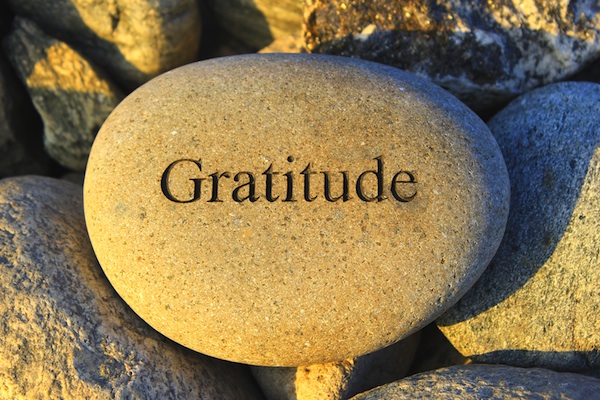
With the holiday season upon us, we are reminded that the significance of these days extends far beyond the food or presents. Rather, it offers us many opportunities to give thanks and reflect on the things in life we are most grateful for. The practical concept of regularly expressing gratitude may be foreign to some, and especially challenging as we navigate our fast-paced, responsibility-packed lives. But slowing down to express your sincerest gratitude is worth the time and has more positive effects than you may realize—including benefits to your health and wellness. Let’s take a minute to consider what gratitude is, and how it’s connected to happiness, so that you can create more in your life and feel its positive effects.
What is Gratitude?
Gratitude IS:
- A universal feeling
- A vehicle for building empathy
- The realization of your value and worth through another individual’s eyes
- An affirmation of goodness
Gratitude is NOT:
- Dependent on income, social position, or age
- A feeling of indebtedness or an obligation to return a favor
- Sourced only from inside ourselves or without environmental influence
How Gratitude Is Healthy
The practice of gratitude is a powerful one. It has the ability to not only improve your emotional state, but your mental and physical as well. Studies have shown that gracious individuals are happier and less anxious; they sleep better and have better relationships than people who don’t practice gratitude. In fact, people who keep gratitude journals also report having fewer physical limitations and more energy, allowing them to spend more time being physically active. Talk about a win-win! So when it comes to your physical regimen, remember it’s not all about how much you can lift or how far you can run. According to Geoffrey James (on the power of gratitude), “I’m utterly convinced that the key to lifelong success is the regular exercise of a single emotional muscle: gratitude.”
Want To Be Happy? Be Grateful.
Gratitude and happiness are closely linked. “The one thing all humans have in common is that each of us wants to be happy,” says Brother David Steindl-Rast, a monk and interfaith scholar. And happiness, he suggests, is born from gratitude. “An inspiring lesson in slowing down, looking where you’re going, and above all, being grateful.
Want To Be Happy ? Be Grateful.
Gratitude and happiness are closely linked. “The one thing all humans have in common is that each of us wants to be happy,” says Brother David Steindl-Rast, a monk and interfaith scholar. And happiness, he suggests, is born from gratitude. “An inspiring lesson in slowing down, looking where you’re going, and above all, being grateful.
How To Give and Receive Gratitude
On the cloudiest of days it’s often hard to find the silver lining you can be grateful for. Likewise, it can be challenging to accept gratitude from another when it feels unwarranted. Emmons explains how to cultivate gratitude, even for the most inexperienced, in this short video. You can also take a tip or two from the list below on how to radiate and receive gratitude.
- Keep a journal listing the thing(s) every day or week you are grateful for.
- Write a letter to an individual who has had a positive impact on your life and share it with them.
- Learn about a new religion or experiment with the idea of regular prayer.
- Take up a yoga or meditation practice.
- Practice responding to praise with “thank you” rather than refusing to take credit for doing good.
- Visualize your life without that person or thing to help understand the true value they add to your life.
- Congratulate or reward yourself on a job well done.
- Set daily intentions.
- Place a visual cue somewhere obvious that reminds you to think grateful thoughts.

























0 commentaires: